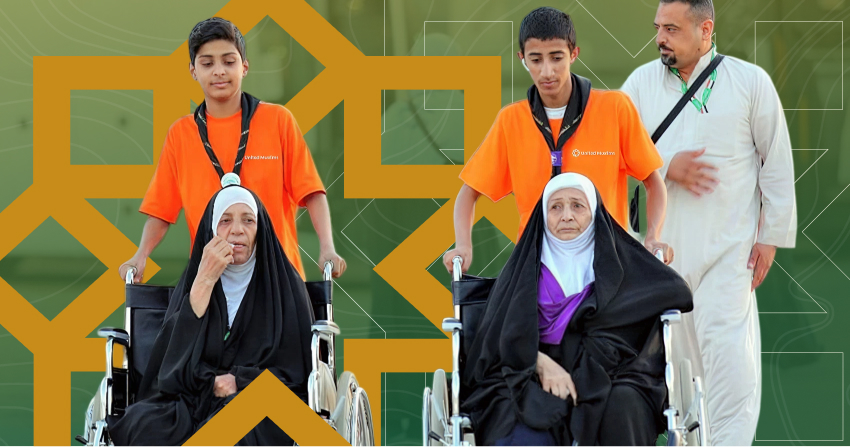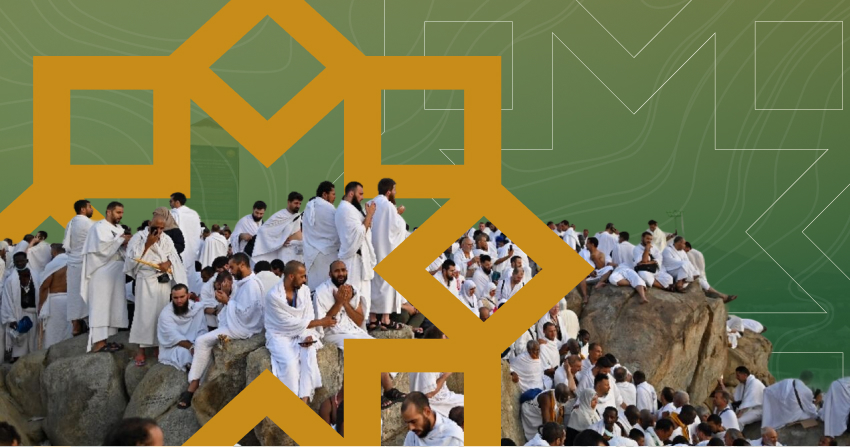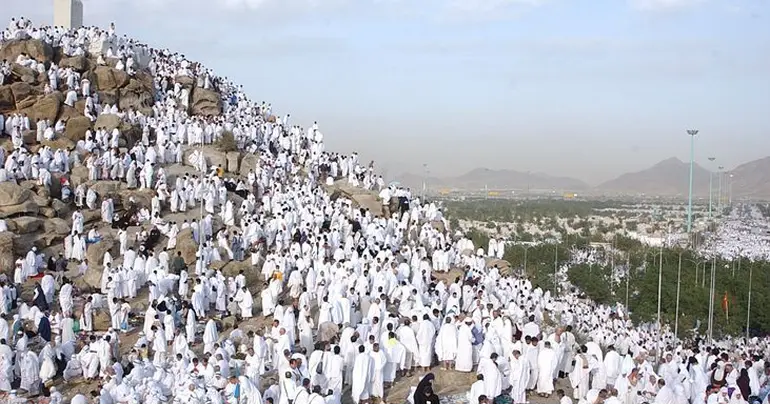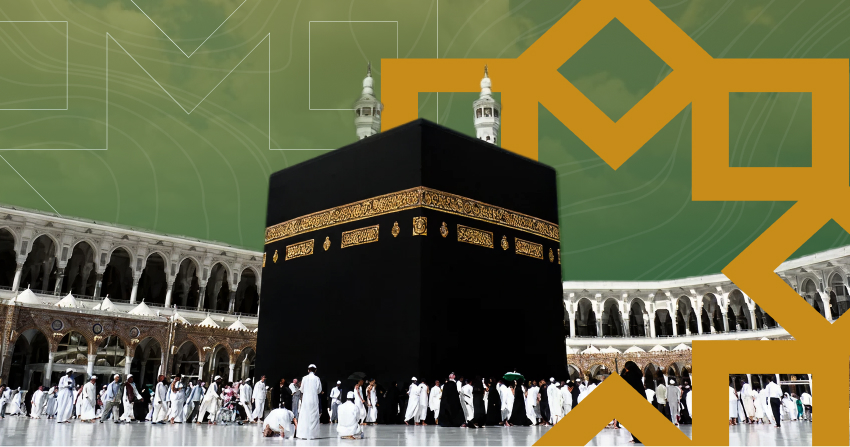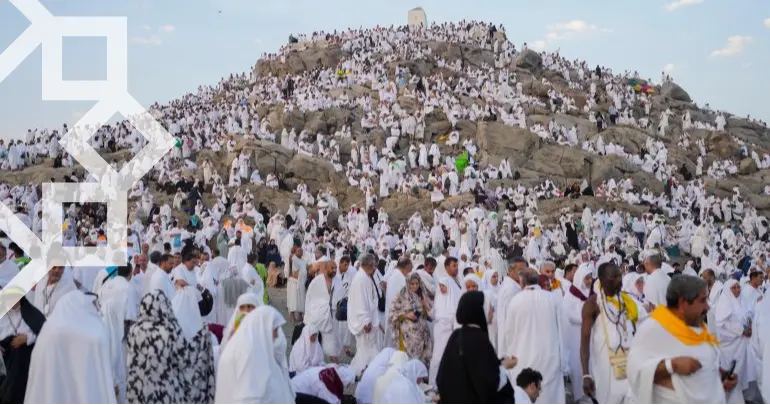How United Muslims Supports Pilgrims and Families During Hajj Season
As the Hajj season approaches, thousands of Muslims across the world start getting ready for one of the most meaningful journeys of their lives. From checking passports to packing bags and saying those heartfelt goodbyes, it is a time filled with excitement, nerves, and spiritual reflection.
But Hajj is more than a personal journey. It brings families together in faith. While pilgrims travel to Makkah, loved ones stay at home as they offer their prayers and unwavering support. The connection remains strong, no matter the distance.
At United Muslims, we understand the deep emotional and spiritual importance of this sacred time. Whether you are the one going or you are supporting someone on their journey, we are here for you with care, guidance, and support every step of the way.
From advice to preparation tips, you will find the support you need to make your Hajj journey as smooth and meaningful as possible.
Donate your zakat
Fulfil your obligation today – give Zakat and be a source of hope for those in need!
Pre-Hajj Guidance and Resources
Preparing for Hajj can feel overwhelming, especially if it is your first time. From booking flights and organising documents to understanding rituals and packing correctly, there is so much to think about.
At United Muslims, we are here to make things easier for you. Our step-by-step resources include digital guides, printable checklists, virtual sessions, and in-person workshops that are available for your help, whether you are in Manchester, Leicester or London.
We cover everything you need to feel confident and spiritually prepared, including:
- Essential packing tips
- How to stay safe and healthy in the heat
- Common mistakes to avoid
- What each stage of Hajj looks and feels like
Whether this is your very first pilgrimage or you are going again after a few years, we are here to make sure you feel prepared, calm, and ready for this life-changing journey.
Emotional and Spiritual Support for Families
We understand that watching a loved one go on pilgrimage can bring many emotions. It is a moment of pride, but also one that can bring worry, especially when they are away for weeks.
That is why we are here to support the families who stay behind. From emotional check-ins and food parcels to help with utility costs, we aim to ease both the emotional and practical load during this sacred time.
We also bring people together through prayer circles and community gatherings to help everyone stay spiritually connected. Some families even choose to give Sadaqah or make a Qurbani donation in honour of their loved one. It is a meaningful way to feel close, even from a distance.
We even assist families in sending prayers and personal messages to loved ones in Makkah to remind them they are always close, even when far apart.
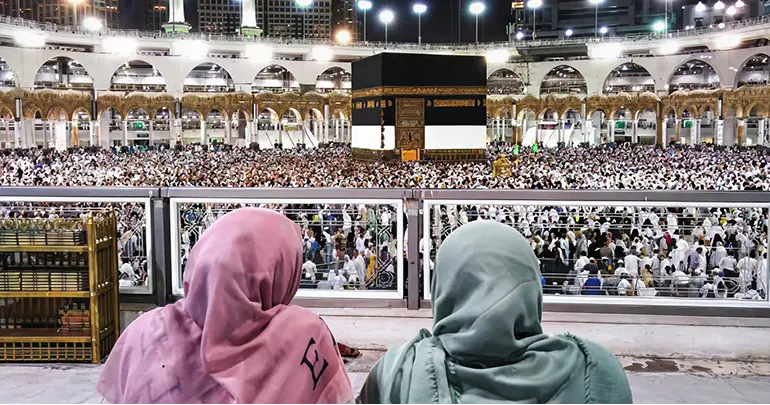
Charity Appeals to Maximise Your Hajj Rewards
The days of Hajj and the month of Dhul Hijjah are a special time for good deeds with greater rewards. Many choose to give charity before or during Hajj to make the most of this blessed period. And for those not performing Hajj, supporting causes in the name of a pilgrim brings great spiritual benefit too.
During this sacred time, we run special appeals, such as Qurbani distributions, water relief, opportunities to sponsor a child and vital education support. Your donations to these initiatives can make a lasting difference for families and communities who need support.
At United Muslims, we have made it simple for you to get involved. You can:
- Donate to clean water projects
- Sponsor a child’s education
- Support emergency appeals in places like Palestine or Afghanistan
- Give Zakat or Sadaqah Jariyah on behalf of a loved one
We follow a 100% donation policy, so every penny you give goes straight to those who need it. Whether you are on the journey of Hajj or supporting from home, giving charity these days can carry incredible rewards.
Staying Connected from Afar
Even while your loved one is fulfilling their rituals in the holy lands, you can still feel close to them. We encourage families to send voice notes, share duas, and keep them in their prayers. If you have made a donation or supported a cause in their name, be sure to let them know. It brings comfort and joy to feel connected throughout this special journey.
We understand how precious it is to hear a familiar voice or see a loved one’s face during Hajj. That is why we help families and pilgrims stay connected in meaningful ways. Our team supports those who might find technology challenging, especially the elderly, by setting up video calls, voice messages, and live prayer requests. Thoughtful gestures, like sending Zamzam water, dates, or tasbihs, can also help keep the bond strong, even when miles apart.
Hajj Reflections and Storytelling Initiatives
Hajj is more than a journey to Makkah. It is a journey that stays with you long after you return. When pilgrims return, they carry more than just memories. They come back with wisdom, personal growth and a renewed sense of faith.
We encourage those pilgrims to share their experiences through local talks, community events or short videos. These heartfelt reflections can inspire others, guide those preparing for Hajj and bring the community closer together.
One person’s journey can serve as a powerful reminder of Allah’s mercy, greatness and the beauty of unity in faith.
Youth Engagement During Hajj Season
Hajj is not just a journey for adults; it is a beautiful chance to inspire young hearts, too.
At United Muslims, we organise special youth activities during the Hajj season. From storytelling and creative workshops to arts and crafts, we offer children and teenagers a creative, engaging way to learn about the meaning of Hajj.
These sessions help them connect with their faith, understand Islamic history, and feel part of something greater.
Moreover, they spark curiosity, build connections, and plant the seeds of lasting faith.
Bringing hope through small acts of kindness—a meal, a helping hand, or a gift can light up a child’s day.
Volunteer Opportunities During Hajj Season
Not travelling for Hajj this year? You can still share in the blessings by joining our dedicated team of volunteers. They play an important role in delivering food packs to vulnerable families, assisting with community events during this special season, and managing our charity appeals that fund vital projects both locally and overseas.
Every contribution, whether it is a few hours of your time or helping organise a local fundraiser, becomes part of the collective reward of Hajj. By volunteering, you help bring comfort and hope to those in need while connecting with the spirit of giving that Hajj embodies.
A Journey Shared, A Community Uplifted
Hajj is one of the most transformative journeys a Muslim can take. It is a deeply personal experience, but it is also something we all share together, supported by the prayers and love of family and friends.
At United Muslims, we are here to help both pilgrims and their families every step of the way, from the early planning and preparation to spiritual moments and charitable giving.
Whether you are getting ready to go on Hajj or sending someone off at the airport, remember that your part in this journey is important. Through spiritual guidance, emotional support, and life-changing charity projects, we help ensure the blessings of Hajj reach far beyond the Holy Land.
